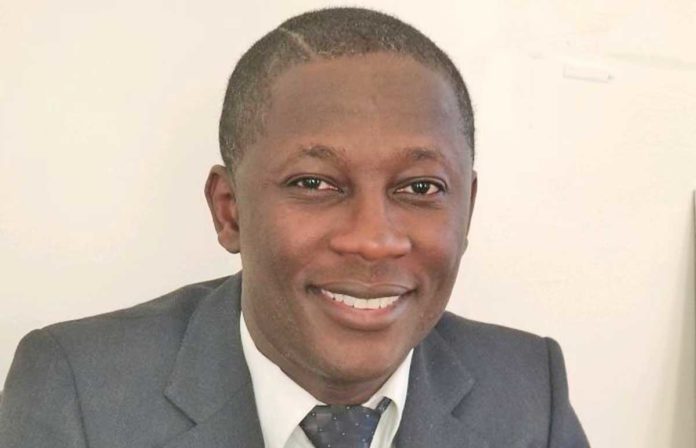The Delaware County Memorial Hospital’s Transgender Surgery Fellowship, headed by Dr. Sherman Leis, recently welcomed its first fellow, Dr. Jude Opoku-Agyeman. This fellowship is one of the only transgender surgery teaching programs in the U.S., and one of the top programs in the Mid-Atlantic.
“We’re excited to welcome Dr. Opoku-Agyeman to Delaware County Memorial Hospital to launch one of the few transgender surgery fellowships in the country,” Leis said in a press release. “His patient-first approach as a Doctor of Osteopathy combined with his proven record as a surgeon will be important additions to our medical team and to the transgender community…”
The program “helps prepare the next generation of surgeons to have a mastery of the techniques and sensitivity to care protocols” in order to provide first-rate care to transgender individuals who pursue gender affirmation surgery.
“[Dr. Opoku] is one of our best residents,” Leis told PGN. “He’s worked with me already over the last few years and he’s seen [how this surgery] changes someone’s life, not only their body but their whole life. It changes the way other people relate to them, but more importantly, how they feel about themselves. It gives them the confidence that they really need.”
This fellowship program provides Opoku-Agyeman and future fellows the opportunity to hone advanced surgical techniques as well as research opportunities. Through the program, fellows gain experience in medical, surgical and psychological patient management before they take point themselves.
Opoku-Agyeman just finished his residency in general and plastic reconstructive surgery and continues to study alongside Leis at the Philadelphia Center for Transgender Surgery.
“Dr. Leis is a great manager and a pioneer in the field of transgender surgery,” Opoku-Agyeman said. “Under his mentorship, I’ll be learning the [ins and outs ] of transgender surgery. I hope that at the end of my training, I’ll be able to be a technically competent surgeon and be able to manage all the aspects of transgender surgery.”
An innovator in the field, Leis performed his first gender affirmation surgery roughly 43 years ago, and began performing them on a regular basis about 16 years ago. He founded the Philadelphia Center for Transgender Surgery in Bala Cynwyd, Pa., where he serves as chief surgeon.
“When I first started doing this on a regular basis, I could hardly find a hospital which would let us do this surgery,” Leis said. “They thought this was craziness, they thought transgender patients were just mentally ill people. I think a lot of them thought, maybe I was a little strange myself, wanting to do the surgery. Most hospitals did not give us the privilege to do the surgery.”
The world of transgender healthcare has become more accepting since the early 2000s. In 2014, a government board ruled that Medicare could not ban gender affirmation surgery from its coverage. Although it varies by insurance carrier and by state, some big-name health insurance agencies consider gender affirmation surgery to be medically necessary if certain criteria are met. Although the Trump administration just rolled back the Obama-era regulation that protects transgender individuals from discrimination in healthcare settings, Leis said he believes that the Supreme Court ruling that granted workplace nondiscrimination rights for LGBTQ+ people will hinder Trump’s efforts to strip trans individuals of healthcare protections.
Leis also contextualized the importance of gender affirmation surgery in terms of the high risk and incidence of depression and suicide among transgender people. According to a report from the Williams Institute using data from the 2015 U.S. Transgender Survey, 98% of respondents who encountered four occurrences of discrimination and violence in the previous year had suicidal thoughts. Of those respondents, 51% attempted suicide.
“I see what a wonderful help [surgery] has been to improve the quality of a person’s life,” Leis said. “And in some cases, eliminate [the prospect of] suicide attempts and save lives. To me, what can be more meaningful than that?”
Opoku-Agyeman recently assisted Leis with a big case in which a person assigned male at birth is transitioning to become a woman.
“I enjoyed [working through] the whole process –– the surgery, the post-op care and everything,” Opoku-Agyeman said. “Working with someone who is a pioneer is great because I can try to be like them. I want to be able to say that I trained with the best and be able to carry on Dr. Leis’ great legacy into the future.”

